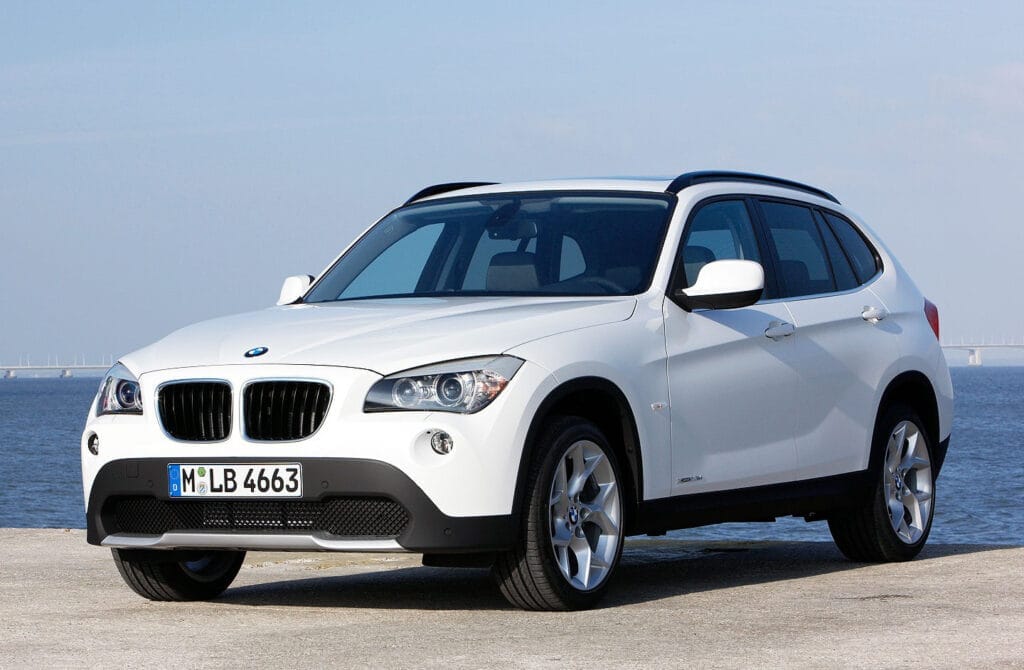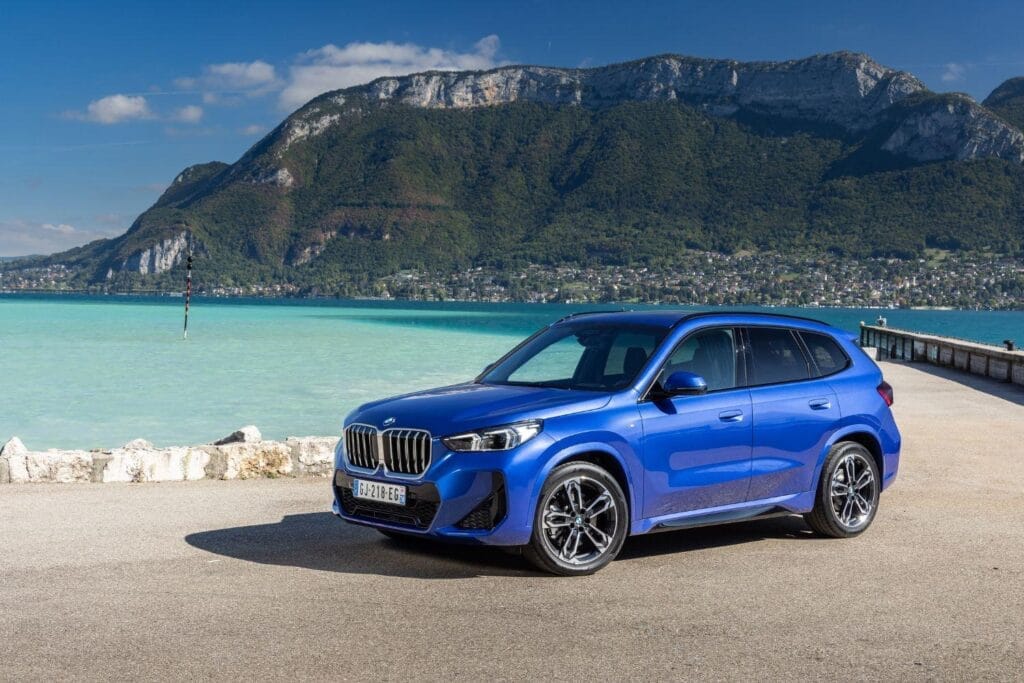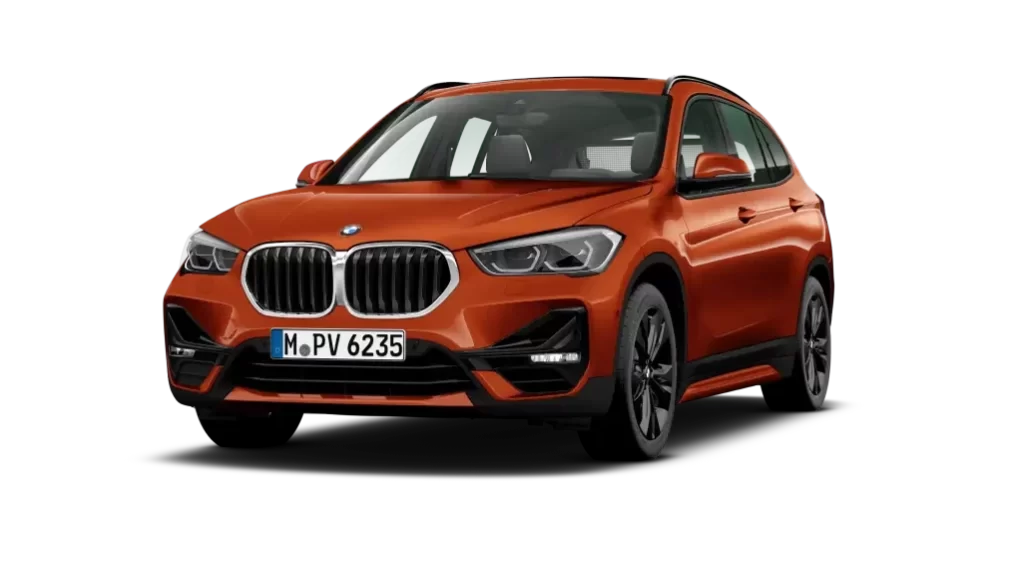Our accessories
Click on your model :
Exemplary Evolution Through the Generations
Since its debut on the automotive scene, the BMW X1 has charted a remarkable course, continually redefining the standards of the compact SUV segment. This exciting saga spans several generations, with each iteration representing a significant advance in design, performance and innovation. From the first generation, the X1 E84, which boldly inaugurated this lineage in 2009, to the latest futuristic iteration, the X1 U11, accompanied by its electric version, the iX1, launched in 2022, the evolution of the BMW X1 is a fascinating story.
Discover with us how the X1 has captured the hearts of car enthusiasts by offering a unique combination of versatility, refinement and technological ingenuity. Follow us through each generation to understand how the BMW X1 has adapted to market trends, pushed back the boundaries of innovation, and positioned itself as the undisputed pioneer of the compact SUV segment. Welcome to the captivating world of the BMW X1, where each generation tells a story of success, daring and automotive excellence.
First-generation X1

A New Dimension in the Compact SUV Segment
Faced with an ever-changing automotive market, BMW decided in 2009 to respond to growing demand by offering a more compact and affordable alternative to its X3 model. This is how the first-generation BMW X1, also known as the E84 type, entered the automotive scene, targeting a younger, more dynamic clientele.
The Motorization range: an alliance of power and efficiency
The BMW X1 was available from launch with a wide choice of powertrains, incorporating most of the 1 Series' engines. Options included a six-cylinder petrol unit (28i) and three four-cylinder diesel units (18d, 20d, and 23d). The range was extended in 2010 with the addition of two petrol engines: the four-cylinder 18i and the six-cylinder 25i.
In 2011, the BMW X1 enthusiastically welcomed the brand's new turbocharged four-cylinder petrol engine. Initially offered in a 245 hp version (28i), this engine was upgraded to a more accessible 184 hp version (20i) at the end of the same year. An EfficientDynamics version was also introduced, derived from the 20d, with 163 hp and remarkably low fuel consumption of just 4.5 L/100 km.
xDrive Drive Technology: The Art of Adaptability
The BMW X1's xDrive system, directly inherited from the X6 model, offers an all-wheel drive system that adjusts torque distribution between the front and rear axles according to driving conditions. This system, electronically managed with sensors and actuators, detects micro-differences in rotational speed variations between the axles, ensuring optimum driveability in real time.
xDrive can be complemented by the "transmission control" option, featuring a self-locking Torsen differential on the rear axle. This device transfers power to the rear wheel with the best grip, improving cornering stability.
Technical Specifications and Environmental Commitment
In 2011, significant changes were made to the technical specifications of the BMW X1. The six-cylinder xDrive25i and xDrive28i petrol engines have been replaced by a single turbocharged four-cylinder unit, retaining the "xDrive28i" designation. Diesel engines have also been fitted with particulate filters (DPF) to reduce pollutant emissions, demonstrating BMW's commitment to environmental standards.
Conclusion
The first-generation BMW X1 successfully established itself in the compact SUV market, offering a unique combination of performance, fuel efficiency and advanced technologies. It marked the start of a new era for BMW, expanding its range to meet the diverse needs of demanding urban drivers.
Second-generation X1

Elegance Redefined in the Compact SUV Segment
The second generation of the BMW X1, codenamed F48, was launched in 2015. This iteration marked a significant evolution from its predecessor, affirming BMW's determination to remain at the forefront of innovation and sophistication in the compact SUV segment.
Elegant design and enhanced versatility
The BMW X1 F48 introduced a more dynamic and elegant design, abandoning angular lines in favor of more fluid curves. With its compact dimensions and muscular profile, it retained a presence on the road while offering enhanced agility. The sleek design has been complemented by distinctive styling elements, such as BMW's iconic double-bean grille.
Advanced engines for optimum performance
The BMW X1 F48's engine range has also been redesigned to deliver improved performance and efficiency. Four-cylinder engines, both petrol and diesel, have been optimized for increased power while maintaining reasonable fuel consumption. A significant advance was the introduction of a hybrid powertrain, underlining BMW's commitment to eco-responsible technologies.
State-of-the-art technology and connectivity
The interior of the BMW X1 F48 has been redesigned to offer a more refined and comfortable space. Cutting-edge technologies have been integrated, including the iDrive system with touchscreen, a comprehensive set of driving assistants, and enhanced smartphone connectivity. These features were designed to enhance the driver's experience and meet growing demands for connectivity.
Safety and Driving Assistance Systems
The BMW X1 F48 also focuses on safety and assisted driving. Features such as automatic emergency braking, adaptive cruise control, and parking assistance have been offered to enhance passenger safety and facilitate everyday driving.
Enhanced Environmental Commitment
Against a backdrop of growing concern for the environment, the BMW X1 F48 continued the brand's commitment to sustainability. The introduction of a hybrid powertrain represented an important step in reducing emissions and promoting more environmentally-friendly driving.
A Symbol of Modern Refinement
The second-generation BMW X1, the F48, has succeeded in raising the bar in the compact SUV segment. With its elegant design, optimized performance, cutting-edge technologies, and now a hybrid option, it embodies BMW's vision for the future of sophisticated urban driving. The X1 F48 continues to appeal to drivers looking for the perfect combination of versatility, elegance and technological innovation, while highlighting the brand's environmental responsibility.
Third-generation X1

A New Era of Refinement and Innovation
The third-generation BMW X1, also designated U11, was unveiled on June 1, 2022, marking a milestone in the evolution of this popular SUV. Launched simultaneously with its 100 % electric version, the iX1, these models are proudly assembled at the Regensburg plant in Germany. A particularly noteworthy aspect is the sharing of the multi-energy platform known as FAAR, developed jointly with the third-generation Mini Countryman.
Innovative and distinctive design
The design of the BMW X1 U11 reflects the constant evolution of BMW's automotive aesthetics. In the image of the iX1 released by BMW in March 2022, we can see a light signature inspired by the restyled 3 Series, marking a contemporary elegance. The radiator grille, though larger than that of the X1 F48, remains proportionate, offering a distinctive look without being excessive.
The electric version, the iX1, is distinguished by blue aesthetic touches, visible around the grille and at the air inlets on the bumper. This distinctive hue underlines BMW's commitment to electric mobility and reinforces the visual identity of the iX range.
FAAR Platform: The Basis for Innovation
The BMW X1 U11 and iX1 are based on the new FAAR platform, designed to support a variety of powertrain technologies, including electric drives. This platform, shared with the third-generation Mini Countryman, demonstrates BMW's innovative approach to modularity and efficiency in vehicle development.
BMW iX1: Electrification at its best
The BMW iX1, announced on March 17, 2022, represents the pinnacle of electrification for the X1. With a range ranging from 413 to 438 km, this electric version offers impressive performance while meeting growing expectations in terms of energy efficiency. Consumption figures range from 17.3 to 18.4 kWh/100 km, underlining BMW's commitment to providing competitive electric mobility solutions.
Pioneering innovation
The third-generation BMW X1 U11 and its electric counterpart, the iX1, embody a new era of refinement and innovation. With an elegant design, an advanced technological platform, and the remarkable introduction of electrification, these models confirm BMW's position as a pioneer in the automotive industry, ready to meet the future challenges of sustainable mobility. The X1 U11 and iX1 demonstrate BMW's ability to anticipate trends and offer cutting-edge driving solutions while preserving the distinctive essence of the brand.



